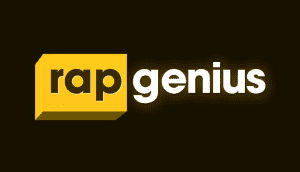
 When most people think of the company Genius, they think of the company’s crowdsourced annotation of music lyrics, which began with Rap Genius and was later expanded to include all musical genres.
When most people think of the company Genius, they think of the company’s crowdsourced annotation of music lyrics, which began with Rap Genius and was later expanded to include all musical genres.
However, the company, now using the Genius moniker, has been slowly expanding its attempts to crowdsource annotations for just about anything including literature, movie and even sports.
More recently, under its News Genius product, the company is taking perhaps the final step in its campaign to annotate the world, making it possible to annotate any site on the Internet.
Through the use of its Google Chrome plugin or bookmarklet, users are able to leave annotations, or comments, on just about any site they visit. There is no way for creators to opt out and no opportunity to filter comments or annotations that are abusive, false or spam.
In short, Genius has created its own community for your site (and every other site on the web) and, right now, there’s not much that you can do about it.
How News Genius Works
 The basic concept of News Genius is fairly straightforward: It allows visitors to leave comments on sites that other users of News Genius can read.
The basic concept of News Genius is fairly straightforward: It allows visitors to leave comments on sites that other users of News Genius can read.
To that end, News Genius works as an overlay of your site. When a News Genius user visits a site, they can select any text on it and choose “Annotate”. From there they can type a comment and, when other users come by, the text will appear highlighted.
By clicking on the highlights, other New Genius users can read the text of the annotation, they also have the option of liking or disliking annotation or commenting on it.
However, the annotations and comments aren’t just visible to New Genius users. By adding “genius.it” to the start of a link, users can share the links on Twitter, Facebook or elsewhere. You can see an example of it on this story about Jennifer Garner that Genius provides as an example.
The annotations are hosted completely on Genius’ servers. They control them and they alone have the ability to remove them. However, as several have pointed out, Genius may not be the ideal steward for what is and is not acceptable or desirable on your site.
A Complicated History
 The history of Genius is that of a company with a relentless pursuit to annotate the world, but has run into repeated controversies in doing so.
The history of Genius is that of a company with a relentless pursuit to annotate the world, but has run into repeated controversies in doing so.
In November of 2013, one year after Genius (then called Rap Genius) had secured $15 million in funding, the National Music Publishers Association targeted Genius for not holding a license to most of the lyrics it was publishing. A few months later, Genius agreed to a license for the lyrics and also made amends for its previous infringements.
In December of 2013, the site was famously demoted in Google following its implementation of a spammy affiliate program that caused garbage links to be posted online. However, after working with Google, Genius was able to restore much of its ranking.
However, the biggest matter of concern is the one pointed out by Patrick O’Keefe in his his post about Genius, namely that, despite years of operation and millions of dollars of investment, it wasn’t until March 31st of this year that Genius added a simple way for non-members to report abuse and they only did so after a U.S. House Representative Katherine Clark asked them to. Prior to that link, the only way to report abuse was to register for a Genius account and then either tag the moderator account or message a moderator directly.
The issue of abuse and harassment came to light in a recent article by Ella Dawson, Dawson blogs about sexual health, a heavily-stigmatized topic of conversation. The sensitivity of the issue has led her to closely control and monitor her site’s comments and she blocks abusive users on Twitter and Facebook.
When one such Twitter user was blocked, she took to Genius to continue posting her comments. There, she was joined by News Genius’ editor Leah Finnegan in annotating the post. According to Dawson, “Their comments, while not abusive, lacked an awareness of how the media stigmatizes herpes.”
This led Dawson to take to Twitter to reach out to Genius. However, Genius responded by saying “But your blog is public! People can comment on Twitter, FB etc;. Genius is in it simplest a more efficient tool for this.”
In short, webmasters can’t opt out of Genius, even if the site is used for abuse or harassment.
My Site, My Castle
On the surface, Genius is right. If I post a public article on Twitter of Facebook others can and do talk about it. At times those who disagree with me have taken to their own blogs, to Twitter, to Facebook and elsewhere to let me know.
However, as Slate pointed out in its teardown of the situation, those comments are separate from my site. It is an a never-ending dialog between people using their own presences on the Web to talk to one another and the world.
With Genius, the comments, annotations and feedback are posted directly on my site, just on a platform and a system that I can not control.
Most people, when they build a website, feel a degree of ownership of it. At Plagiarism Today, I purchased the domains, I pay the hosting, I write the content and I maintain the community. However, with News Genius, anyone can come along and post anything they want to directly on my site and there’s nothing that I can do to stop it.
Genius achieves this by using a plugin or its own servers to inject new code into your site. Though it doesn’t use frames, it uses a JavaScript overlay that has much the same effect. Framing, as we’ve discussed, has been highly controversial in the past with HootSuite, Digg and Snip.ly all facing controversy over the practice.
Finally, those overlays are likely to include ads in the near future. Genius recently hired its first chief revenue officer, highlighting that it’s getting serious about monetizing its platform.
But whether it’s advertising, spam, abusive messages or even legitimate annotations, webmasters should have the ability to control what appears on their site. Unfortunately, Genius doesn’t provide that and its lack of thought into its abuse practices shows that it’s not the most trustworthy steward of what others can post on others sites.
Fixing the Problem
The best solution to fix the problem is for Genius to make the annotation product opt-in. Unfortunately, that isn’t likely to happen. Even though many sites would love to implement something like News Genius (I might be interested if I could maintain some control), Genius’ stated goal is to annotate as much as possible.
It’s worth noting that many in the Genius community feel that the service is already opt in since you have install the extension or the bookmarklet to view them. However, that’s not true since non-users can easily see all of the annotations via a genius.it link that Genius encourages users to share on social media. This means that many visitors who never installed Genius’ tools can and will see the annotations, making it opt-in for neither webmaster nor visitor.
If Genius were to get rid of those externally-available links, it would mitigate a lot of those concerns.
Failing that, Genius should at least offer a simple way to opt out. Opting out should not only prevent future annotations, but remove all previously posted ones too. This way, webmasters can decide for themselves if News Genius and the community it has attracted is something they want on their site.
Genius can easily do this. In fact, they currently offer some degree of opt out to several larger news sites that they’ve partnered with. But while it’s possible for the New York Times to opt out of News Genius, it’s not possible for Dawson, myself or any other blogger without that much clout. That creates something of a double standard where some sites are getting preferential treatment.
Regardless of whether Genius implements an opt out feature, it needs to implement better abuse controls. Right now, Genius offers guidelines for what makes a good annotation, but their abuse reporting procedure weak, consisting of a link that you click once and get told that it will be looked at. There’s no way, if you’re not a Genius member, to add context or even say what’s wrong with the comment.
While these abuse issues might not seem like huge problems right now, as News Genius grows so will the problems. As Dawson’s story shows, Genius can easily be misused for harassment and other abuse, but it’s clear that the site hasn’t invested enough energy in planning for abuse complaints from outside of their community.
Bottom Line
This piece has been pretty harsh on Genius but I want to note that the site and the community has done some really incredible things. For example, the site’s Hamilton Annotation project has produced hundreds of thousands of words worth of insight into the hit Broadway play and their work on Presidential speeches, which has been done in collaboration with the White House, has also been excellent.
All in all, Genius seems to have a good community and, when they band together, they do great things.
But the Dawson story is a warning tale, what happens when less-than-stellar people join the community with less-than-noble intentions. As the use of News Genius grows, it’s going to be harder and harder to keep this element out and webmasters could be caught in the crossfire as Genius wrestles with spam, harassment and other abuse issues.
Even Google, a company who has a stated goal of organizing all of the world’s information, allows websites to opt out via robots.txt and their own dashboard.
Genius should do the same. Not only would it help build goodwill with webmasters, but it would help head off abuse issues as sites like Dawson’s, which are vulnerable to abuse, would opt out.
Making Genius less appealing to the worst of the web helps everyone and an opt out feature is a good place to start.
Want to Reuse or Republish this Content?
If you want to feature this article in your site, classroom or elsewhere, just let us know! We usually grant permission within 24 hours.